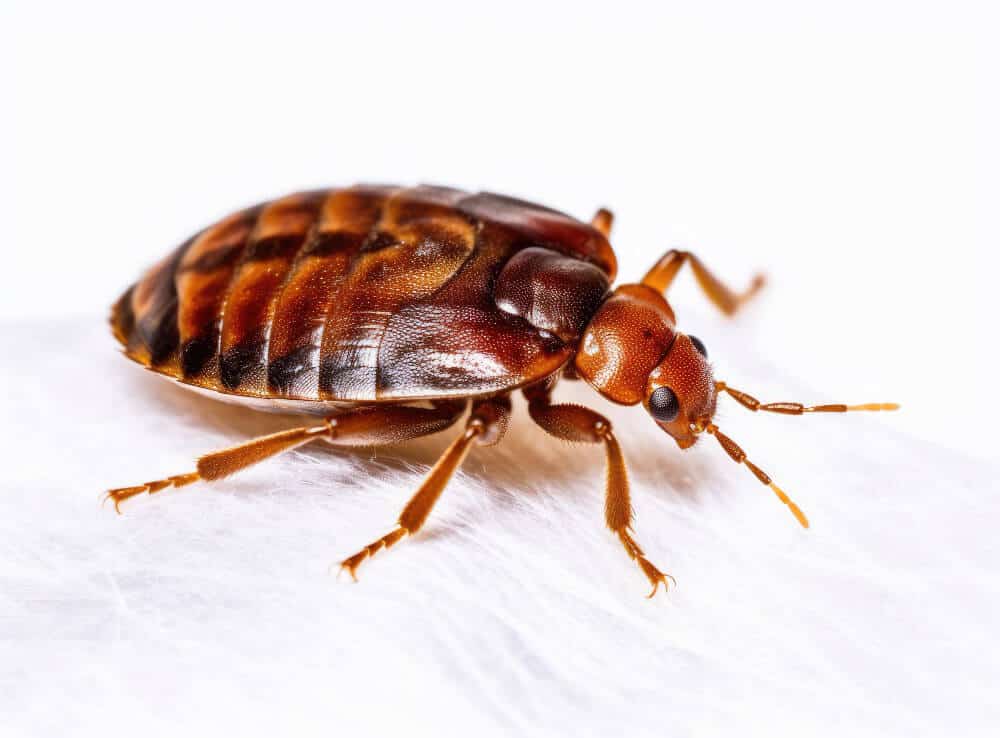Comprehending the Lifecycle of Bugs for Targeted Control Strategies
Comprehending the lifecycle of pests is a basic facet of reliable pest monitoring approaches. Through a deeper understanding of how pests evolve and prosper, customized control methods can be made to resolve certain factors in their lifecycle, inevitably leading to even more effective bug management results.
Importance of Understanding Parasite Lifecycle
Recognizing the lifecycle of bugs is essential for developing reliable and targeted control strategies in pest administration. By comprehending the various phases an insect goes through from egg to grownup, insect control professionals can recognize prone points in the lifecycle where treatment can be most successful.
Additionally, recognizing the specific ecological problems required for every stage of the pest's lifecycle can direct decisions on habitat adjustment or exclusion approaches to decrease and interfere with the lifecycle parasite populaces. This understanding allows pest administration specialists to execute proactive procedures as opposed to counting entirely on reactive therapies, causing more sustainable and long-term insect control solutions. Ultimately, a complete understanding of insect lifecycles equips bug control experts to customize their methods effectively, minimizing ecological influences and optimizing control end results.
Trick Stages in Insect Development
To successfully carry out targeted control techniques in parasite administration, a critical facet lies in adequately determining and understanding the essential phases in bug development. Parasite growth typically consists of numerous key phases that are vital for their lifecycle and monitoring.

Vulnerabilities in Insect Lifecycle
Throughout the various stages of a bug's lifecycle, unique susceptabilities arise that can be tactically targeted for efficient control steps (A1 bed bug extermination houston). One important vulnerability exists in the egg stage, where bugs are frequently a lot more vulnerable to particular insecticides or biological control representatives due to their soft external covering, making them less complicated targets for treatment. Understanding these vulnerabilities in the insect lifecycle is crucial for establishing effective and accurate control methods that successfully manage insect populaces while minimizing ecological effect.
Implementing Targeted Control Actions

Implementing targeted control steps generally includes a multi-faceted technique. This might consist of environment alteration to make the setting much less friendly to parasites, such as getting rid of standing water for insect control or sealing entry points for rodents. Furthermore, biological control approaches can be utilized, where natural predators or pathogens are introduced to maintain insect populaces in check.
Chemical control, such as the cautious application of chemicals, is an additional typical technique. It is important to use these compounds deliberately to lessen ecological effect and possible harm to non-target varieties - Click This Link A1 bed bug removal houston. Integrated Parasite Management (IPM) methods that combine various control procedures in a collaborated and lasting manner are often one of the most reliable in accomplishing long-term bug monitoring goals. By applying targeted control measures based upon an extensive understanding of pest lifecycles, bug populaces can be effectively regulated while lessening dangers to human health and wellness and the atmosphere.
Enhanced Insect Management Practices

Furthermore, the consolidation of organic control representatives, such as all-natural predators or pathogens of pests, can aid reduce reliance on chemical pesticides and promote a more well balanced ecological community. Applying physical barriers and catches can likewise belong to improved bug administration practices, offering non-toxic and targeted remedies for insect control. Furthermore, making use of pheromones and other semiochemicals can disrupt pest mating patterns and communication, causing decreased parasite populaces with time.
Conclusion
To conclude, comprehending the lifecycle of parasites visit is crucial for efficient pest management methods. By determining crucial stages in pest development and vulnerabilities in their lifecycle, targeted control procedures can be applied to minimize pest populations. Improved parasite monitoring practices can help in reducing the dependence on broad-spectrum chemicals and advertise even more ecologically friendly and sustainable pest control methods. This expertise plays a crucial role in preserving healthy environments and agricultural productivity.
Understanding the lifecycle of bugs is vital for developing efficient and targeted control methods in pest administration. By comprehending the numerous phases a bug goes via from egg to adult, pest control experts can identify vulnerable factors in the lifecycle where intervention can be most successful. Ultimately, a thorough understanding of insect lifecycles equips parasite control practitioners to customize their strategies efficiently, taking full advantage of and lessening ecological impacts control end results.
By executing targeted control procedures based on a detailed understanding of bug lifecycles, parasite populaces can be properly controlled while minimizing risks to human wellness and the click this site atmosphere.
By identifying key stages in pest advancement and susceptabilities in their lifecycle, targeted control procedures can be carried out to lessen bug populaces.
Comments on “Efficient A1 Bed Bug Treatment Houston - Get Rid of Bed Vermin”